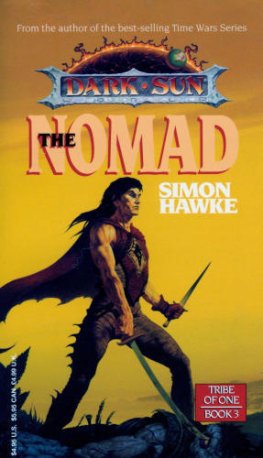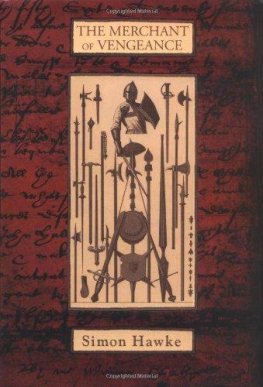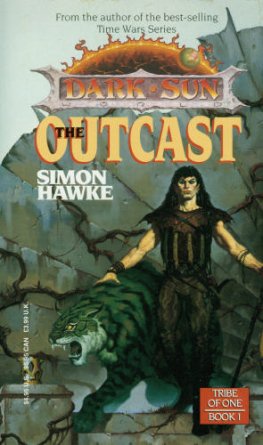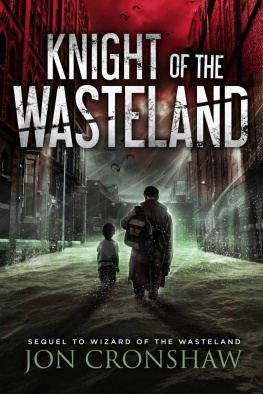Simon Hawke - The Seeker
Here you can read online Simon Hawke - The Seeker full text of the book (entire story) in english for free. Download pdf and epub, get meaning, cover and reviews about this ebook. genre: Romance novel. Description of the work, (preface) as well as reviews are available. Best literature library LitArk.com created for fans of good reading and offers a wide selection of genres:
Romance novel
Science fiction
Adventure
Detective
Science
History
Home and family
Prose
Art
Politics
Computer
Non-fiction
Religion
Business
Children
Humor
Choose a favorite category and find really read worthwhile books. Enjoy immersion in the world of imagination, feel the emotions of the characters or learn something new for yourself, make an fascinating discovery.
- Book:The Seeker
- Author:
- Genre:
- Rating:5 / 5
- Favourites:Add to favourites
- Your mark:
- 100
- 1
- 2
- 3
- 4
- 5
The Seeker: summary, description and annotation
We offer to read an annotation, description, summary or preface (depends on what the author of the book "The Seeker" wrote himself). If you haven't found the necessary information about the book — write in the comments, we will try to find it.
The Seeker — read online for free the complete book (whole text) full work
Below is the text of the book, divided by pages. System saving the place of the last page read, allows you to conveniently read the book "The Seeker" online for free, without having to search again every time where you left off. Put a bookmark, and you can go to the page where you finished reading at any time.
Font size:
Interval:
Bookmark:
The Seeker
Simon Hawke
For Brian Thomsen
Acknowledgments
Special acknowledgments to Rob King, Troy Denning, Robert M. Powers, Sandra West, Jennifer Roberson, Deb Lovell, Bruce and Peggy Wiley, Emily Tuzson, Adele Leone, the crew at Arizona Honda, and my students, who keep me on my toes and teach me as much as I teach them.
Prologue
The twin moons of Athas flooded the desert with a ghostly light as the dark sun sank on the horizon. The temperature dropped quickly while Ryana sat warming herself by the campfire, relieved at having left the city.
Tyr held nothing for her but bad memories. As a young girl growing up in a villichi convent, she had dreamt of visiting the city at the foot of the Ringing Mountains. Tyr had seemed like an exotic and exciting place then, when she could only imagine its teeming marketplaces and its tantalizing nightlife. She had heard stories of the city from the older priestesses, those who had been on pilgrimages, and she had longed for the day when she could take her own pilgrimage and leave the convent to see the outside world. Now she had seen it, and it was a far cry from the dreams of her youth.
When in her girlish dreams she had imagined the crowded streets and glamorous marketplaces of Tyr, she had pictured them without the pathetic, scrofulous beggars that crouched in the dust and whined plaintively for coppers, holding out their filthy hands in supplication to every passerby. The colorful images of her imagination had not held the stench of urine and manure from all the beasts penned up in the market square, or the human waste produced by the citys residents, who simply threw their refuse out the windows into the streets and alleys. She had imagined a city of grand, imposing buildings, as if all of Tyr were as impressive as the Golden Tower or Kalaks ziggurat. Instead she found mostly aging, blocky, uniformly earth-toned structures of crudely mortared brick covered with cracked and flaking plaster, such as the ramshackle hovels in the warrens. There the poor people of Tyr lived in squalid and pitiful conditions, crowded together like beasts crammed into stinking holding pens.
She had not imagined the vermin and the filth, or the flies and the miasma of decay as garbage rotted in the streets, or the pickpockets and the cutthroats and the vulgar, painted prostitutes, or the rioting mobs of desperate people caught up in the painful transition of a city laboring to shift from a sorcerer-kings tyranny to a more open and democratic form of government. She had not imagined that she would come to Tyr not as a priestess on a pilgrimage, but as a young woman who had broken her sacred vows and fled the convent in the night, in pursuit of the only male she had ever known and loved. Nor had she imagined that before she left the city, she would learn what it meant to kill.
She turned away from the shadowy city in the distance, feeling no regret at leaving it, and gazed across the desert spreading out below. She and Sorak had made camp on the crest of a ridge overlooking the Tyr Valley, just east of the city. Beyond the city, to the west, the foothills rose to meet the Ringing Mountains. To the east, they gradually fell away, almost completely encircling the valley, save for the pass directly to the south, along which the trade route ran from Tyr out across the tablelands. The caravans always took the pass, then headed southeast to Altaruk, or else turned to the northeast toward Silver Spring, before heading north to Urik, or north-east to Raam and Draj. To the east of the oasis known as Silver Spring, there was nothing but rocky, inhospitable desert, a trackless waste known as the Stony Barrens that stretched out for miles before it ended at the Barrier Mountains, beyond which lay the cities of Gulg and Nibenay.
The caravans all have their routes mapped out, Ryana thought, while ours has not yet been determined. She sat alone, huddled in her cloak, her long, silvery white hair blowing gently in the breeze, and wondered when Sorak would return.
Or, perhaps more properly, she thought, the Ranger. Shortly before he had left the campsite, Sorak had fallen asleep, and the Ranger had come out to take control of his body. She did not really know the Ranger very well, though she had met him many times before. The Ranger was not much for words. He was a hunter and a tracker, an entity wise in the lore of the mountain forests and desert tablelands.
The Ranger ate flesh, as did the other entities who made up Soraks inner tribe. Sorak, like the villichi among whom he was raised, was vegetarian. It was one of the many anomalies of his multiplicity. Though, unlike her, Sorak had not been born villichi, he had been raised in the villichi convent and had adopted many of their ways. And, like all villichi, he had sworn to follow the Way of the Druid and the Path of the Preserver.
Ryana recalled the day when Sorak had been brought to the convent by the pyreen elder, who had found him half dead in the desert. He had been cast out of his tribe and left to die because he had been born a half-breed. Though the human and demihuman races of Athas frequently mixed, and half-breeds such as half-dwarves, half-giants, and half-elves were not uncommon, Sorak was an elflingperhaps the only one of his kind.
Elves and halflings were mortal enemies, and usually killed one another on sight. Yet, somehow, an elf and a halfling had mated to produce Sorak, giving him the characteristics of both races. Halflings were small, though powerfully built, while elves were extremely tall, lean and long-limbed. Soraks proportions, a mixture of the two, were similar to those of humans. In fact, at first glance, he looked completely human.
The differences were slight, though significant. His long black hair was thick and luxuriant, like a halflings mane. His eyes were deeply set and dark, with an unsettling, penetrating gaze, and like both elves and halflings, he could see in the dark. His eyes had the same, catlike lambency that halfling eyes had in the darkness. His facial features had an elvish cast, sharply pronounced, with high, prominent cheekbones; a sharp nose; a narrow, almost pointed chin; a wide, sensual mouth; arched eyebrows; and pointed ears. And, like elves, he could grow no facial hair.
But as unique as his physical appearance was, his mental makeup was even more unusual. Sorak was a tribe of one. The condition was exceedingly rare, and so far as Ryana knew, only the villichi truly understood it. She knew of least two cases that had occurred among villichi, though neither during her lifetime. Both priestesses who had been so afflicted had kept extensive journals, and as a girl, Ryana had studied them in the temple library, the better to understand her friend.
She had been only six years old when Sorak had been brought to the villichi convent, and he had been approximately the same age. He had no memory of his past, the time before he was cast out into the desert, so he himself did not know how old he was. The trauma of his experience had not only wiped out his memories, it had divided his mind in such a way that he now possessed at least a dozen different personalities, each with its own unique attributes, not the least of which were powerful psionic powers.
Before Sorak came, there had never been a male in residence at the villichi convent. The villichi were a female sect, not only by choice, but by accident of birth, as well. Villichi, too, were rare, though not as uncommon as tribes of one.
Only human females were born villichi, though no one knew why. They were a mutation, marked by such physical characteristics as their unusual height and slenderness, their fairness, and their elongated necks and limbs. In terms of their physical proportions, they had more in common with elves than humans, though elves were taller still. But what truly made them different was that they were born with fully developed psionic abilities. Whereas most humans and many demihumans had a latent potential for at least one psionic power, it usually took many years of training under a psionicist, a master of the Way, to bring it out. Villichi children were born with it in full flower.
Font size:
Interval:
Bookmark:
Similar books «The Seeker»
Look at similar books to The Seeker. We have selected literature similar in name and meaning in the hope of providing readers with more options to find new, interesting, not yet read works.
Discussion, reviews of the book The Seeker and just readers' own opinions. Leave your comments, write what you think about the work, its meaning or the main characters. Specify what exactly you liked and what you didn't like, and why you think so.








